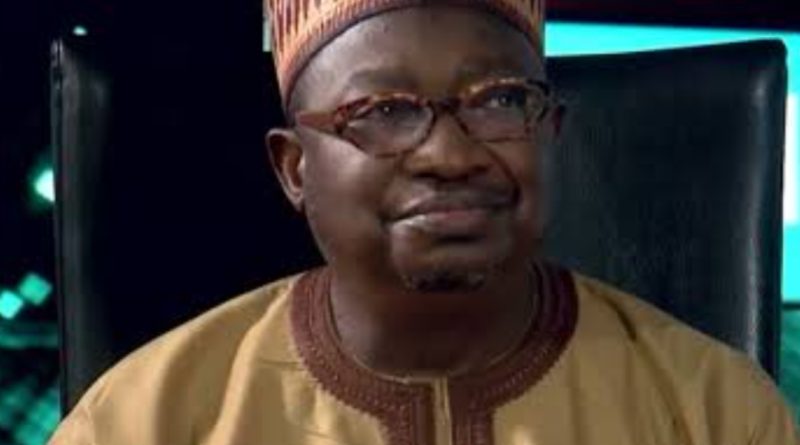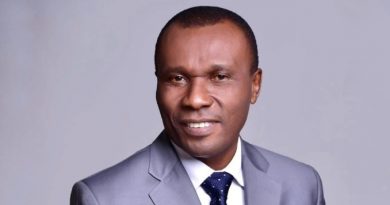THOUGHTS ON GHANA AND SYRIA
By Nick Dazang
Twenty twenty four must go down, in our annals, as the year of elections and turmoil.
The year, 2024, is touted by the experts as the biggest election year. Not less than 3.7 billion eligible voters across seventy two countries are expected to vote. It is also a year that witnessed, in its twilight, a lightening upheaval in one of the most significant and storied countries in the Middle East.
These epochal events are exemplified by the hugely credible and praised election in Ghana, on Saturday, 7th December 2024, and the lightening revolution in Syria, a country steeped in history, intrigue and brutality.
First, Ghana. Though infinitesimal in size and with a population of 35 million compared to Nigeria’s not less than 250 million, Ghana has always served as a lightening rod and inspiration to Nigeria and Africa. From independence on 6th March 1957 , when its highly progressive leader, Kwame Nkrumah, remarked that Ghana’s liberation from colonial thralldom was meaningless if the rest of Africa remained under colonial suzerainty, to the superlative election conducted by The Electoral Commission of Ghana on the watch of Afari Gyan, the country has been a pathfinder.
In the election of Saturday, 7th December 2024, Ghana lived up to its billing. In an election adjudged as credible, fair and transparent, a former president and leader of the opposition National Democratic Congress (NDC), John Dramani Mahama, made a comeback, reminiscent of Donald Trump’s a month prior.
As if this were not heartwarming enough, the incumbent Vice President and candidate of the New Patriotic Party (NPP), Mahamadu Bawumia, graciously conceded defeat even before the final results were announced by the Electoral Commission. When the results were officially announced by the Electoral Commission, Mahama secured 6.3 million votes while Bawumia polled 4.5 million votes.
Nigeria’s former President Goodluck Jonathan and Liberia’s George Weah may have blazed the trail by conceding defeat in previous elections, thus exploding the myth that African politicians were not always keen to defer to the majesty of the democratic process. Last week’s concession by Bawumia deserves commendation. This is because this salutary action is coming against the background of the recent reversals suffered in the ECOWAS sub-region on the democratic front.
The election in Ghana thus serves as an impetus to the democracy project. It offers true and authentic hope. Additionally, it sends a message, loud and clear, that an incumbent who falters, who fails to deliver and who treats his people shabbily can be voted out in a free, fair and transparent contest.
Apart from the fact that the Ghana election instructs us that non-performing incumbents can be defeated, free and square, that country’s politics, unlike our shambolic ones, are not predicated on some primordial considerations such as religion and ethnicity. There are, therefore, in spite of the country’s diversity and economic challenges, no fault lines to exploit by unscrupulous politicians. Canvassing for votes is thus premised largely on the issues.
Furthermore, the Election Management Body(EMB), The Electoral Commission of Ghana, has, over time been led by persons of high integrity and courage. Besides, and in this instance, the EMB has trodden the path of transparency, hence the wide acceptability of the election conducted by it.
Syria is a country steeped in antiquity. It has a rich tapestry of ethnic nationalities and religions. The Alawites, Kurds, Sunnis, Shias, Christians, Druze etc are domiciled in that country. It is home to some of the oldest and consistently lived cities such as Damuscus, its capital, Hama and Aleppo. The celebrated tale of ALI BABA AND THE FORTY THIEVES was originally rendered by Hanna Diyab of Aleppo.
Since 12 March 1971, the Assad family and dynasty, has held sway over that unhappy country. Previously shored up by the defunct Soviet Union when the Ba’ath Party was in power in Syria and Iraq, the country proceeded to be a client state and proxy of Russia and Iran.
Russia and Iran, which have military bases in Syria, for decades, have buoyed the brutal regimes of of Hafez-al-Assad (the father) and Bashar-al-Assad(the son). The two countries have also used Syria to project their powers in the Middle East.
Iran, particularly, has used Syria as a conduit to supply its proxy, Hezbollah, with rockets, munitions and intelligence. With Hezbollah and the Houthis of Yemen, Syria had become a member of the Axis of Resistance against Israel. By the same token, Russia has used its bases in Syria to reach out to its interests in the Mediterranean and Africa.
The Assads are famous for their brutality. In 1982, Assad mowed down 300 members of the Muslim Brotherhood in the city of Hama for daring to oppose his iron-fisted rule. In 2011, following the Arab Spring, protesters were killed in their hundreds by Bashar- al-Assad. The suppression of the protests led to deaths, displacement of millions and the imprisonment of many others.
Last week, however, a coalition and a vestige of the protesters of 2011, took advantage of the recent humiliation of members of the Axis of Resistance by Israel, and the pre-occupation of Russia with Ukraine, to launch an attack on Assad’s forces. In less than ten days, the rebels, led by Mohammed-al-Golani, took over the strategic cities of Aleppo, Homs, Hama and Damascus.
With help not forthcoming from his embattled allies, Assad fled to Moscow, the Russian capital, where he is reported to have acquired a well-appointed estate in one of the most cozy districts of the city.
Though the overthrow of Assad was a relief to most Syrians, and this can be attested to by the country-wide jubilation, the world watches with trepidation what will unfold in the ensuing weeks.
This anxiety by members of the international community is healthy given the pedigree of the leader of this coalition. A former staunch Al Qaeda and ISIS member, the international community is dubious as to whether Mohammed-al- Golani, has the stomach to constitute an inclusive government which reflects Syria’s beautiful mosaic.
As the world watches with uncertainty regarding THE DAY AFTER in Syria, Assad’s hasty desertion of his country speaks eloquently to one inevitability: In the end, all tyrannies and dictatorships have expiry dates. This is especially so when the oppressed summon the will to throw away their yoke.




